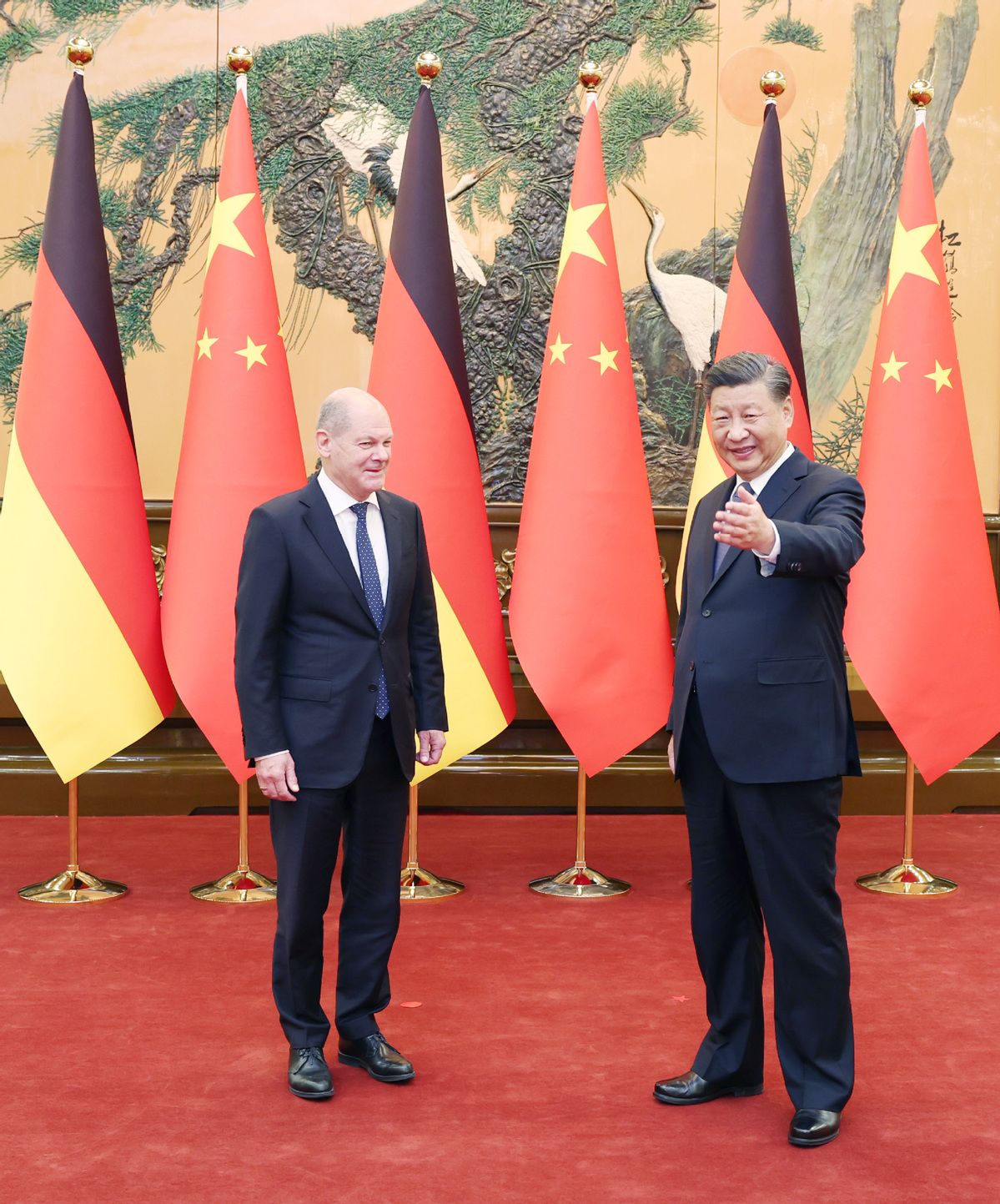
President Xi Jinping meets with German Chancellor Olaf Scholz on his official visit to China at the Great Hall of the People in Beijing on Nov 4, 2022. [Photo/Xinhua]
This is an editorial from China Daily.
The significance of German Chancellor Olaf Scholz's visit to China on Friday cannot be judged by the time he spent in Beijing but by what it achieved in terms of bilateral relations and trade and investment.
That Scholz became the first major Western leader to visit China in three years shows the impact the COVID-19 pandemic has had on international trade and travel. And yet the United States, instead of mending fractures, continues to use its unilateral and protectionist policies to divide the world into rival blocs in order to check China's rise. Germany is one of the countries the US wants to exploit to target China, because it is not only the largest economy in Europe but also has close economic and trade ties with China.
However, Scholz recognized China as an important trade partner of Germany and the European Union, and said he would deepen cooperation with China, promote bilateral investment, and keep upholding multilateralism and opposing decoupling.
Also, by leading a large team of business leaders from Germany, Scholz has not only cast a vote of confidence in the Chinese economy and market, but also showed Germany still adheres to the strategic independence Angela Merkel built, bringing huge benefits to the country and its trade partners such as China.
This year marks the 50th anniversary of the establishment of diplomatic relations between China and Germany. Germany has been China's largest trade partner in Europe for 47 straight years, and last year, bilateral trade, for the first time, exceeded $200 billion, up 22.5 percent year-on-year, showing how absurd Washington's efforts to "decouple" China from the rest of the world are.
Thanks to the complementarity of the Chinese and German economies, and their common interest in upholding multilateralism and promoting globalization, the two sides, to a large extent, have not been influenced by external powers. And it's especially heartening to see the two sides agree to deepen cooperation on a wide range of sectors, from mechanical, auto and chemical engineering to smart manufacturing, industrial internet, artificial intelligence and the green economy.
As President Xi Jinping said, no matter how strong the resistance is, as long as the two countries follow the principles of mutual respect, seek common ground while shelving differences, promote exchanges and mutual learning and boost win-win cooperation, the general direction of bilateral relations will not deviate from the right track.
Scholz's willingness to deepen Sino-German cooperation, promote investment, support multilateralism and oppose decoupling, and help improve China-EU ties are a valuable response from a major Western leader to China's call for peaceful development.

 中文
中文



